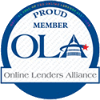Finance 101
Secured vs. Unsecured Loans: What You Need to Know

Most loans fall into two categories: secured loans and unsecured loans. In this article, we’ll talk about these in more detail, covering the pros and cons of each type and how to choose the right one for you.
What’s the difference between secured and unsecured loans? Secured loans require collateral, like a car, home, or savings account. Unsecured loans don’t.
Interest rates also differ between secured and unsecured loans. Oftentimes, secured loans have lower interest rates because they provide the lender with collateral, like a safety net for the lender. Unsecured loans generally have higher interest rates. Without collateral, lenders view them as higher risk.
Let’s look at secured and unsecured loans in more detail.
Secured Loans
Secured personal loans require collateral. Collateral is valuable property (also known as an asset) owned by a loan applicant and put up as security for a loan. The borrower agrees in writing that if they don’t pay the loan back, the collateral may become the property of the lender or bank.
Because collateral lowers a lender’s risk of losing its money, a secured loan may offer you lower interest rates, more time to pay the loan, or even higher loan amounts. But secured loans also put your collateral at risk if you can’t pay.
The most common types of secured loans are home mortgages, home equity loans, and car loans.
Pros and Cons of Secured Loans
What’s good about a secured personal loan? What’s not so good? Here’s our take on the pros and cons:
The Pros. Secured personal loans have significant benefits. These include giving you longer to pay, potentially lower interest rates, and higher loan amounts.
The Cons. Secured loans also have negative points. A secured loan puts your collateral and your credit score at risk if you can’t make payments and pay off the loan on time. You may not be able to get a secured loan for a small amount. It can take longer to get a secured loan, which doesn’t help if you need money fast. Secured loans can have variable interest rates, so your payment could go up. Secured loans for bad credit, or installment loans for bad credit, can be hard to find and have high interest rates. Finally, if you plan to pay off the loan quickly, a secured loan may not be the right choice.
Did you know? Even one missed payment can cost you up to 100 points on your credit score, even with a secured loan. A lender may be able to seize your collateral after just a few missed payments.
How do secured loans work?
Expect qualifying to take a while. A lender will evaluate your credit score, debts, how much you make, the value of your collateral and your payment history on other loans and purchases when determining whether to lend to you.
It may be easier to qualify for a secured loan. Since your collateral ensures the lender can recover its money by selling your asset if you don’t pay your loan back, it gives them more confidence lending to you. But secured loans for bad credit may be hard to find or qualify for.
Missing a payment could mean big trouble, fast. Even with a secured loan, missing one payment may drop your credit score by up to 100 points. A lender could seize your collateral after just a few missed payments.
Look for a secured loan at a bank or credit union. Secured loan offers online are less common.
Unsecured loans
Again, unsecured loans don’t require collateral. While your property isn’t at risk, your credit score can be.
The most common types of unsecured loans are student loans, installment loans, payday loans, and personal lines of credit.
Pros and Cons of Unsecured Loans
What’s good about an unsecured loan? What’s not so good? Some things to consider:
Pros. With an unsecured loan, your personal property isn’t at risk. The lender cannot take your home or car. It’s usually a faster process to get an unsecured loan, and online loans are common. Unsecured loans generally have a fixed interest rate, so your payments are consistent. An unsecured loan may be a good option if you don’t have collateral. Unsecured loans are also a good option if you need a small amount quickly.
Cons. Unsecured loans may offer a shorter time to pay and charge higher interest rates. They can severely limit the borrowed amount. You need a high credit score to qualify for the best rates. If you don’t make payments, you may be sent to collections, dramatically affecting your credit score. You may even be taken to court.
How do unsecured loans work?
You’re risking your credit score but not your property. If you don’t repay an unsecured loan, the lender can’t seize your property. The lender can send the loan to collections to arrange a repayment schedule or take legal action. Payment problems may lower your credit score.
You’re not limited in how you use the funds. Many people use unsecured loans for home improvement or debt consolidation.
You need good credit to qualify. Your best chance of qualifying is with a score above 690. Those with lower scores may qualify but at a higher interest rate.
Repayment terms are usually two to seven years.
Secured vs. Unsecured Loan: Which is better for you?
What type of loan is best for you depends on lots of factors, including your credit score, financial situation and what best meets your needs. Both unsecured and secured loans generally require a good credit score. Consider how much money you need and the characteristics of each type of loan.
| A Secured Loan May Be Best If ... | An Unsecured Loan May Be Best If ... | |
|---|---|---|
| You need a large amount of money | You just need a small amount | |
| You want a longer time to pay | You need the money quickly | |
| You have collateral | You don't have collateral property | |
| You can reliably make the payments |
FAQs: Secured vs. Unsecured Loans
How can you tell that a loan is secured or unsecured?
If the lender requires collateral, it is a secured loan. If not, it is an unsecured loan.
Do unsecured loans hurt your credit?
Provided you borrow from a reputable lender, just getting a loan should not permanently hurt your credit. Regardless of the type of loan, late or missed payments can badly hurt your credit.
Is it difficult to get a secured loan?
A secured personal loan is usually easier to qualify for if you have a good credit score, good credit history, and appropriate collateral.
Financial Education Definitions
Asset - valuable property
Borrower - someone who wants to borrow money
Collateral - valuable property used as security for a loan
Lender - a company or individual that gives loans to borrowers
Line of credit - a flexible loan from a lender with a present amount of money you can borrow from as needed and repay at once or over time
Loan - an agreement to receive money from a bank or other lender in exchange for repayment of the amount plus interest by a future date
Personal loan - also known as a consumer loan; any situation where an individual borrows money for personal needs
Secured loans - loans that require collateral
Security - an asset provided by the borrower in case he/she fails to repay the loan
Editorial Policy: The information contained in Check `n Go’s Finance Academy Learning Center is for educational purposes only and is not legal advice. You should consult your own attorney or seek specific advice from a legal professional regarding any legal issues. Check `n Go does not act as a credit counseling, repair service, or debt consolidation service in providing this content. Please understand that Check `n Go policies change over time. Blog posts reflect Check `n Go policy at the time of writing. While maintained for your information, archived posts may not reflect current Check `n Go policy.
The information contained in our blog posts are the author’s own opinions, not those of Check `n Go or any other company. Any pros and cons are developed by our editorial team based on independent research. Some of the products, services, and offers on this page may not be available from Check `n Go. In Texas only: Check `n Go does not act as a credit services organization in providing this content.


